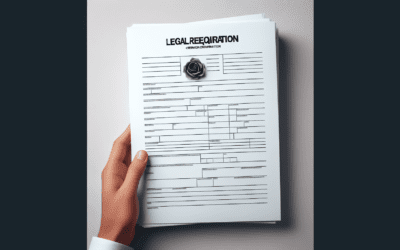Ever wondered what becomes of cremated remains in Atlanta? When a loved one is cremated, their ashes are carefully collected and stored in a designated container. However, the story doesn’t end there. In Atlanta, there are various options available for the final resting place of these remains. From peaceful scattering in Atlanta’s natural parks to placement in beautifully crafted urns within columbaria, the city offers a range of choices to honor and remember those who have passed on. Whether you choose a serene outdoor setting or a more traditional memorial, Atlanta ensures that the memory of your loved one lives on in a meaningful and heartfelt way.
Cremation Process in Atlanta
Cremation laws and regulations
When it comes to cremation in Atlanta, there are certain laws and regulations that must be followed. These regulations vary depending on the state and local jurisdiction. In Atlanta, the laws regarding cremation ensure that the process is carried out in a respectful and legal manner. It is important to familiarize yourself with these laws to ensure that you are in compliance when making arrangements for cremation.
Choosing a cremation provider
Choosing a cremation provider is an important decision. There are several factors to consider when selecting a provider, such as reputation, cost, and services offered. It is important to choose a provider that is licensed, reputable, and offers a range of services that meet your specific needs and preferences. Take the time to research and compare different providers to ensure that you are making the best choice for you and your loved ones.
The cremation process
The cremation process is a carefully regulated and respectful procedure. It involves the use of intense heat to reduce the body to its basic elements, known as cremated remains or “ashes.” The process typically takes several hours and is carried out in a cremation chamber. The cremated remains are then carefully collected and placed in a container or urn. This process allows for the dignified handling of the deceased’s remains and provides a way to memorialize and honor their life.
Cremation containers and urns
After the cremation process, the cremated remains are placed in a container or urn. There are a variety of options available when it comes to choosing a container or urn for your loved one’s remains. These range from simple, basic containers to more elaborate and personalized urns. It is important to select a container or urn that reflects the unique personality and preferences of the deceased. Many providers offer a wide selection of containers and urns to choose from, allowing you to find the perfect option to honor your loved one’s memory.
Scattering of Ashes
Scattering regulations in Atlanta
Before scattering the ashes of a loved one in Atlanta, it is important to familiarize yourself with the scattering regulations in the area. These regulations may vary depending on the specific location where you plan to scatter the ashes. It is important to obtain any necessary permits or permissions to ensure that the scattering is carried out in compliance with local laws.
Popular scattering locations
Atlanta offers several scenic and meaningful locations for scattering ashes. Some popular options include parks, lakes, and other natural areas. It is important to consider the wishes and preferences of the deceased when choosing a scattering location. Many families find comfort in selecting a location that held special significance to their loved one.
Transporting ashes for scattering
If you plan to transport the ashes to a different location for scattering, it is important to take the necessary precautions to ensure that the ashes are transported safely and securely. This may involve using a secure container or urn, as well as following any specific instructions provided by the cremation provider. Be sure to also consider any transportation regulations or guidelines that may apply to the specific location you are traveling to.
Memorial ceremonies and services
While scattering the ashes of a loved one can be a meaningful and personal way to say goodbye, many families also choose to hold memorial ceremonies or services. These gatherings provide an opportunity for family and friends to come together to remember and honor the deceased. Memorial ceremonies can be tailored to reflect the individual’s life and values, and can include rituals, readings, music, and more. It is important to consider the wishes of the deceased and the preferences of the family when planning a memorial ceremony or service.
Burial of Cremated Remains
Choosing a burial option
Although cremation involves the reduction of the body to ashes, there are still options for the burial of cremated remains. Choosing a burial option allows for a more permanent resting place for the deceased’s ashes. There are several options to consider when choosing a burial option, including columbariums, niche spaces, natural burial options, and memorial gardens or cemeteries. Each option offers a unique way to honor the memory of the deceased and provide a place for loved ones to visit and remember.
Columbariums and niche spaces
A columbarium is a structure or building that houses niches, which are small compartments or alcoves designed to hold urns or containers for cremated remains. Choosing a niche space in a columbarium provides a permanent and protected location for the urn or container. Many columbariums offer a variety of designs and styles, allowing families to select a niche space that reflects the individuality of their loved one.
Natural burial options
For those who wish to have a more environmentally friendly burial option, natural burial options are available. These options typically involve burying the cremated remains in a biodegradable container or urn within a natural or designated area. This allows for a more natural decomposition process and contributes to the preservation of the environment. Natural burial options can be a meaningful way to honor the deceased while also promoting sustainability and ecological responsibility.
Memorial gardens and cemeteries
Memorial gardens and cemeteries provide a tranquil and designated space for the burial of cremated remains. These spaces often feature beautiful landscaping, pathways, and monuments, creating a serene and peaceful atmosphere for remembrance and reflection. Choosing a memorial garden or cemetery allows for a long-lasting memorial to the deceased and provides a place for loved ones to visit and pay their respects.
Cremation Memorials and Keepsakes
Creating personalized jewelry and art
One way to memorialize a loved one who has been cremated is by creating personalized jewelry or art. There are many options available when it comes to creating these unique and meaningful keepsakes. For example, you can have a piece of jewelry made that contains a small portion of the cremated remains, allowing you to carry a piece of your loved one with you wherever you go. Similarly, you can commission an artist to create a piece of art that incorporates the ashes into the final design. These personalized memorials and keepsakes serve as a tangible reminder of the deceased and can provide comfort and solace during the grieving process.
Memorializing through trees and gardens
Another way to memorialize a loved one is by planting a tree or creating a memorial garden in their honor. Planting a tree can serve as a living tribute to the deceased, symbolizing growth, strength, and the cycle of life. Similarly, creating a memorial garden allows for the creation of a peaceful and beautiful space that can be visited and enjoyed by family and friends. These living memorials provide a lasting tribute to the deceased and offer a place for reflection and remembrance.
Incorporating ashes into reef structures
For those who have a connection to the ocean or marine life, incorporating the cremated remains into reef structures can be a unique and meaningful way to memorialize a loved one. Artificial reefs can be created using environmentally-friendly materials and the ashes are incorporated into the structure. These reefs are then deployed in designated locations, contributing to the preservation and enhancement of marine ecosystems. This alternative option allows for the creation of a lasting memorial that supports the natural environment.
Scattering gardens and memorial walls
Scattering gardens and memorial walls are specially designated areas where the ashes can be scattered or placed in a respectful and meaningful way. These areas often feature beautiful landscaping, plaques, or other markers that can be customized to honor the memory of the deceased. Scattering gardens and memorial walls provide a serene and dedicated space for scattering or placing the ashes, ensuring that the memory of your loved one is honored and cherished.
Legal aspects and documentation
Death certificate requirements
When it comes to the legal aspects of cremation, one important document that is required is the death certificate. The death certificate is an official document that certifies the cause, location, date, and time of death. This document is typically issued by a medical professional, such as a doctor or coroner. The death certificate is an essential document that must be obtained before cremation can take place.
Permits and authorizations
In addition to the death certificate, there may be other permits and authorizations that are required for cremation to proceed. These permits and authorizations vary depending on the local jurisdiction and may include documents such as a cremation permit or a permit for transportation of the remains. It is important to work closely with the cremation provider to ensure that all necessary permits and authorizations are obtained in a timely manner.
Cremation authorization forms
Cremation authorization forms are another important aspect of the legal documentation required for the cremation process. These forms are typically provided by the cremation provider and must be completed and signed by the appropriate individual, such as a next of kin or authorized representative. The cremation authorization form gives permission for the cremation to take place and ensures that the wishes of the deceased and the family are respected.
Transferring cremated remains
If the cremated remains need to be transferred to a different location, there are specific protocols and documentation that must be followed. This may involve working with a reputable and licensed funeral home or cremation provider to coordinate the transportation. It is important to ensure that all necessary permits, transportation documentation, and instructions are followed to ensure that the remains are transferred safely and in accordance with legal requirements.
Cremation Costs and Financial Considerations
Average cremation costs in Atlanta
The cost of cremation can vary depending on several factors, including the location and specific services chosen. In Atlanta, the average cost of cremation typically ranges from several hundred dollars to several thousand dollars. It is important to consult with different cremation providers to obtain cost estimates and compare prices. Understanding the average cost of cremation in Atlanta can help you make an informed decision and ensure that you are financially prepared.
Factors influencing the cost
There are several factors that can influence the cost of cremation in Atlanta. Some of these factors include the specific services chosen, the type of urn or container selected, any additional memorial or funeral services, and any specific requests or accommodations. It is important to discuss these factors with the cremation provider to obtain a clear understanding of the total cost and any potential additional charges.
Government assistance programs
In some cases, government assistance programs may be available to help offset the costs of cremation. These programs are typically income-based and may provide financial assistance or reimbursement for funeral or cremation expenses. It is advisable to research and inquire about these programs to determine if you or your loved ones may be eligible for assistance.
Funeral expense insurance
Another option to consider when it comes to covering the cost of cremation is funeral expense insurance. Funeral expense insurance is specifically designed to cover funeral and cremation costs. This type of insurance policy can provide peace of mind knowing that the financial burden of cremation expenses can be alleviated. It is important to explore different insurance options and consult with an insurance professional to determine the best policy for your needs.
Alternative Options for Cremated Remains
Columbariums and mausoleums
In addition to the traditional burial of cremated remains, columbariums and mausoleums offer alternative options for the final resting place of the deceased. A columbarium is a structure specifically designed to hold urns or containers with cremated remains. Similarly, a mausoleum is a structure that provides above-ground options for interring urns or containers. Both columbariums and mausoleums offer a permanent and protected location for the cremated remains, allowing for future visits and remembrance.
Ashes interment in existing family plots
If you have an existing family plot or burial location, it may be possible to inter the cremated remains in that location. This allows for the deceased to be laid to rest alongside their family members or loved ones. It is important to research and consult with the cemetery or burial site to understand the specific requirements and regulations regarding the interment of cremated remains in existing family plots.
Dividing and sharing cremated remains
Another alternative option for cremated remains is to divide and share them among family members or loved ones. This allows for each person to have a portion of the ashes, allowing for a personal connection and remembrance. Dividing and sharing cremated remains can be a meaningful way to honor the deceased while allowing each individual to create their own unique memorial.
Creating memorial reefs
For those who have a connection to the ocean and marine life, creating memorial reefs offers a unique and environmentally friendly option for the final resting place of cremated remains. Memorial reefs are artificial structures that incorporate the cremated remains into an environmentally friendly material. These structures are then deployed in the ocean, providing habitat for marine life while creating a lasting memorial for the deceased. Creating memorial reefs allows for a meaningful and impactful way to honor the memory of a loved one.
Support and Resources for the Bereaved
Grief support groups
The grieving process can be challenging, and it is important to seek support from others who have experienced a similar loss. Grief support groups provide a safe and understanding environment where individuals can share their thoughts, emotions, and experiences related to loss. In Atlanta, there are several grief support groups that offer a variety of services, including counseling, education, and camaraderie. These groups can provide a valuable support network during the difficult grieving process.
Counseling services in Atlanta
In addition to grief support groups, there are also counseling services available in Atlanta that specialize in bereavement and grief counseling. These services offer individualized counseling sessions that can provide a safe space for individuals to process their emotions and navigate their grief journey. Counseling services can offer guidance, coping strategies, and emotional support to help individuals move forward in their healing process.
Funeral planning assistance
Planning a funeral or memorial service can be overwhelming, especially during a time of grief. Fortunately, there are resources available in Atlanta that offer funeral planning assistance. These services can provide guidance and support throughout the funeral planning process, helping to alleviate some of the stress and burden. Funeral planning assistance can help ensure that all necessary arrangements are made and that the wishes of the deceased and the family are honored.
Online memorial platforms
In today’s digital age, online memorial platforms offer a unique way to honor and remember loved ones. These platforms allow for the creation of personalized memorial websites where friends and family can share memories, photos, and stories. Online memorial platforms provide a virtual space for remembrance, allowing for connection and support even from a distance. These platforms can be a valuable resource for those grieving the loss of a loved one.
Transporting Remains
Shipping cremated remains
If you need to transport cremated remains to a different location, such as to another city or country, it is important to understand the regulations and requirements for shipping. Shipping cremated remains typically involves working with a reputable and licensed shipping provider who specializes in the transportation of human remains. It is important to follow all necessary documentation and packaging guidelines to ensure that the remains are transported safely and in compliance with legal requirements.
Transporting ashes through airports
When transporting ashes through airports, there are specific guidelines and regulations that must be followed. It is important to contact the airline in advance to inform them of your intentions to transport cremated remains. You may be required to provide specific documentation, such as a death certificate or cremation permit. Additionally, the ashes must be contained in a suitable container or urn that meets the requirements of both the airline and the Transportation Security Administration (TSA).
Documentation and permits
When transporting cremated remains, there may be specific documentation and permits that are required. This can include a death certificate, a cremation permit, or a transportation permit. It is important to consult with the cremation provider and any relevant authorities to ensure that all necessary documentation and permits are in order prior to transportation.
International transportation of ashes
Transporting cremated remains internationally can involve additional complexities and regulations. Each country may have specific requirements and restrictions when it comes to the transportation of human remains. It is important to consult with a reputable and experienced funeral home or shipping provider who can navigate the international regulations and facilitate the transportation process. They can provide guidance on the necessary documentation, permits, and packaging requirements to ensure a smooth and compliant transfer of the remains.
Future Trends and Innovations
Cremation and environmental sustainability
As society becomes more conscious of environmental sustainability, the funeral and cremation industry is evolving to offer more eco-friendly options. One innovative trend is the use of bio-cremation, also known as alkaline hydrolysis. This process uses water and pressure to break down the body, leaving behind a liquid solution that is safe to release into the environment. Another trend is the use of biodegradable urns and containers made from sustainable materials, allowing for a more environmentally friendly final resting place for cremated remains.
Virtual memorials and digital legacies
In the digital age, virtual memorials and digital legacies are becoming increasingly popular. These platforms allow for the creation of online memorial spaces where friends and family can gather to remember and honor the deceased. Virtual memorials can include photos, videos, stories, and messages, creating a lasting tribute that can be accessed from anywhere. Digital legacies also allow individuals to plan ahead and leave behind a digital footprint that can be shared with future generations.
Emerging technologies in cremation
As technology continues to advance, there are emerging innovations in the cremation process. One example is the use of 3D printing to create personalized urns or memorial objects. This allows for the creation of unique and customized memorials that reflect the individuality of the deceased. Additionally, virtual reality technology is being explored to create immersive memorial experiences, allowing loved ones to virtually visit memorial sites and participate in meaningful rituals from anywhere in the world.
In conclusion, the cremation process in Atlanta is governed by specific laws and regulations that ensure the dignified handling and respectful disposition of the deceased’s remains. When choosing a cremation provider, it is important to consider factors such as reputation, cost, and services offered. The cremation process itself involves the use of heat to reduce the body to ashes, which are then placed in a container or urn. There are various options available for the final disposition of cremated remains, including scattering, burial, creating memorials and keepsakes, or exploring alternative options. It is essential to understand the legal aspects and documentation required for cremation, as well as the associated costs and financial considerations. There are also support and resources available for those who are bereaved, including grief support groups, counseling services, funeral planning assistance, and online memorial platforms. When transporting cremated remains, it is important to follow specific guidelines and requirements, especially when shipping internationally or through airports. Finally, future trends and innovations in cremation include a focus on environmental sustainability, virtual memorials, and emerging technologies that enhance the cremation experience.








0 Comments